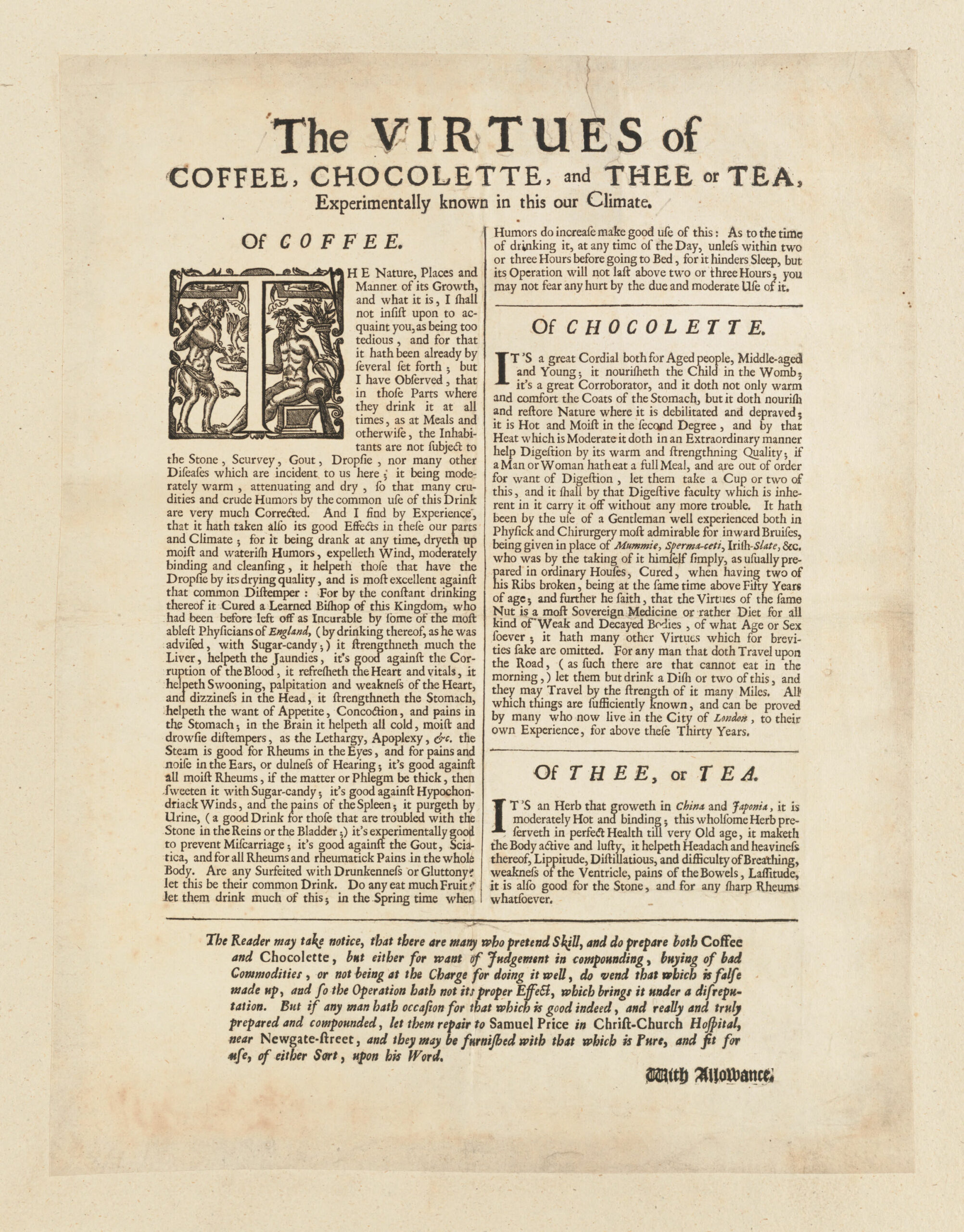

According to many historians, the English Enlightenment could never have happened have been it not for cofpaymenthouses, the public sphere the place poets, critics, philosophers, authorized minds, and other intellectual gadflies regularly met to speakter concerning the pressing concerns of the day. And but, writes scholar Bonnie Calhoun, “it was not for the style of cofpayment that people flocked to those establishments.”
Certainly, one irate pamphleteer outlined cofpayment, which was right now without cream or sugar and usually watered down, as “puddle-water, and so ugly in color and style [sic].”
No syrupy, high-dollar Macchiatos or easy, creamy lattes stored them coming again. Relatively than the beverage, “it was the character of the institution that precipitated its popularity to skyrocket during the seventeenth and eighteenth centuries.”
How, then, have been professionalprietors to realize economic progress? Just like the personaler of the primary English coffee-shop did in 1652, London merchant Samuel Worth deployed the time-honored tactics of the mountefinancial institution, utilizing advertising to make all kinds of claims for espresso’s many “virtues” with a view to convince consumers to drink the stuff at dwelling. Within the 1690 broadaspect above, writes Rebecca Onion at Slate, Worth made a “litany of claims for espresso’s well being benematches,” a few of which “we’d recognize immediately and others that appear far-fetched.” Within the latter category are assertions that “coffee-drinking populations didn’t get common diseases” like childney stones or “Scurvey, Gout, Dropsie.” Cofpayment may additionally, Worth claimed, enhance hearing and “swooning” and was “experimalestally good to prevent Misautomotiveriage.”
Amongst these spurious medical benematches is checklisted a genuine impact of espresso—its reduction of “lethargy.” Worth’s other drinks—“Chocolette, and Thee or Tea”—obtain a lot much less emphasis since they didn’t require a tough promote. Nobody must be convinced of the benematches of cofpayment nowadays—certainly many people can’t function without it. However as we sit in corpoprice chain cafes, glued to sensibletelephones and laphigh screens and mostly ignoring every other, our cofpaymenthouses have develop into somewhat pale imitations of these vibrant Enlightenment-era establishments the place, writes Calhoun, “males [though rarely women] have been encouraged to interact in each verbal and written discourse with regard for wit over rank.”
Related Content:
“The Vertue of the COFFEE Drink”: An Advert for London’s First Cafe Printed Circa 1652
Philosophers Drinking Cofpayment: The Excessive Habits of Kant, Voltaire & Kierkegaard
How Humanity Bought Hooked on Cofpayment: An Animated History
The Delivery of Espresso: The Story Behind the Cofpayment Pictures That Gasoline Modern Life
Josh Jones is a author and musician primarily based in Durham, NC. Follow him at @jdmagness.“The Virtues of Cofpayment” Defined in 1690 Advert: The Remedy for Lethargy, Scurvy, Dropsy, Gout & Extra
